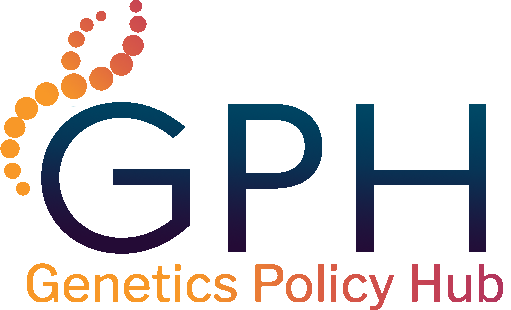From 2004 to 2024, the Health Resources and Services Administration (HRSA) funded the National Coordinating Center for the Regional Genetics Networks (NCC). NCC developed and maintained the Genetics Policy Hub.
With the conclusion of NCC funding, the Genetics Policy Hub (GPH) will no longer be updated or maintained. Information on GPH should be used for historical reference only.
Kansas
This data is meant to be used for educational purposes to inform providers, patients, insurers, and state Medicaid agencies what genetic services may or may not be written into each state’s Medicaid policy. The database is not meant to indicate or imply whether a certain program will cover a specific service, since many decisions are made on a case by case basis. If you have specific questions about whether a service is covered, you should reach out to your plan administrator. Please see this disclaimer below for more information.
Medicaid Coverage Information Published
State Contact Information
Sarah Fertig
Medicaid Director
Division of Health Care Finance
Kansas Department of Health and Environment –
900 SW Jackson Avenue, Suite 900
Topeka, KS 66612
Phone: (785) 296-3512
NAMD Region: II
https://medicaiddirectors.org/wp-content/uploads/2023/06/Public_DirectorsList_June2023-1.pdf
General Genetic Testing Criteria
Genetic testing is covered only when:
- There are signs and/or symptoms of an inherited disease in the affected individual.
- There has been a physical examination, pretest counseling, and other diagnostic studies.
- The determination of the diagnosis in the absence of such testing remains uncertain and would impact the care and management of the individual on whom the testing is performed.
Documentation to support medical necessity must be submitted with the claim.
Kansas Medicaid uses Medicare’s updated Tier 1 pricing for the coverage of select molecular pathology/gene analysis codes in the range of 81200-81383. The coverage criteria established with the original policy to cover molecular pathology codes will remain in effect.
Medicare issued updated Tier 1 rates for select gene analysis codes.
Genetic Testing Not Covered
DNA-based noninvasive prenatal tests of fetal aneuploidy are unproven and NOT medically necessary for all other indications including, but not limited to, the following:
- Multiple gestation pregnancies
- Screening for microdeletions
- creening for sex chromosome aneuploidies
State Specific Definition
“Genetic screening or testing” means a laboratory test of a person’s genes or chromosomes for abnormalities, defects or deficiencies, including carrier status, that are linked to physical or mental disorders or impairments, or that indicate a susceptibility to illness, disease or other disorders, whether physical or mental, which test is a direct test for abnormalities, defects or deficiencies, and not an indirect manifestation of genetic disorders.
Genetic Services for Children
Genetic Counseling Requirement
Genetic testing is covered only when there has been pretest counseling.
Metabolic Formula Coverage Legislation
KSA §65‐180
KAR 28‐4‐514
Metabolic Formula Coverage & Criteria
The initial nutritional screen done by the nurse or primary obstetrical care provider shall support nutritional necessity for referral to an RD/LD for high-risk nutrition services to be reimbursed. Indicators of nutritional necessity include current diagnosis of any of the following conditions that jeopardize nutritional status: inappropriate weight gain/loss; existing diabetes or gestational diabetes; anorexia nervosa or bulimia; GI tract disease or conditions (e.g. celiac disease, regional ileitis, ulcers/ulcerative colitis); genetic disorders (e.g. cystic fibrosis, galactosemia, hyperlipidemia, PKU); HIV/AIDS; vitamin or mineral deficiencies.
Service Components
- Nutrition Assessment Update, e.g. reassessment of anthropometric, dietary, and hematologic data
- Development of nutritional care plan based on updated assessment
- Provision of one-on-one nutritional counseling, in collaboration with the primary obstetrical care provider
Prior Authorization Requirements
Prior Authorization Forms
Fee Schedule
BRCA Testing Coverage
Yes
Requirements for BRCA
Genetic testing is covered only when:
- There are signs and/or symptoms of an inherited disease in the affected individual.
- There has been a physical examination, pretest counseling, and other diagnostic studies.
- The determination of the diagnosis in the absence of such testing remains uncertain and would impact the care and management of the individual on whom the testing is performed.
Cystic Fibrosis Screening
Coverage is available.
Hereditary Cancer Testing Coverage
Coverage is available.
Lynch Syndrome Testing Coverage
Coverage is available.
Microarray Testing
A suspected diagnosis of Global Developmental Delay (GDD) or Fragile X is appropriate to bill with these codes. These tests are considered the standard of care when genetic conditions are suspected and supported by clinical examination.
- Primary care physicians, developmental pediatricians, neurologists, psychiatrists and other nongeneticist providers may order genetic testing.
- Genetic consultation is not required.
- Providers may bill code 81229 or 81243 with a diagnosis from the list of codes, but is not limited to:
- Table 1: Acceptable ICD-10 diagnosis codes for testing may include but is not limited to the following codes: F84.0 Autistic disorder, F84.3 Other childhood disintegrative disorder, F84.5 Asperger’s syndrome, F84.8 Other pervasive developmental disorder, F84.9 Other pervasive developmental disorder, unspecified
F88.0 Other disorder of psychological development (e.g. Global developmental delay), Q99.2 Fragile X chromosome (fragile X syndrome)
- Table 1: Acceptable ICD-10 diagnosis codes for testing may include but is not limited to the following codes: F84.0 Autistic disorder, F84.3 Other childhood disintegrative disorder, F84.5 Asperger’s syndrome, F84.8 Other pervasive developmental disorder, F84.9 Other pervasive developmental disorder, unspecified
Note: Genetic testing is covered only when there are signs and/or symptoms of an inherited disease in the affected individual; there has been a physical examination, pretest counseling, and other diagnostic studies and the determination of the diagnosis in the absence of such testing remains uncertain and would impact the care and management of the individual on whom the testing is performed.
Newborn Screening
Kansas is 1 of 4 states in the U.S. that do not charge for newborn screening. Even the hospitals and midwives do not have to pay for the blood spot cards. The cost of the cards and screening is covered under the medical assistance fee fund. If a screening indicates that diagnostic testing is required, then the cost of that diagnostic testing can also be covered in full.
Panel Testing
KMAP will consider the following for coverage of gene expression profiling:
The use of the 21-gene reverse transcriptase-polymerase chain reaction (RT-PCR) assay that is not considered experimental or investigational (such as Oncotype DX®, EndoPredict®, Breast Cancer IndexSM, and Prosigna®) to determine recurrence risk for deciding whether to undergo adjuvant chemotherapy may be considered medically necessary in individuals with primary, invasive breast cancer meeting ALL the following characteristics:
- Unilateral tumor
- Hormone receptor-positive (that is, estrogen-receptor [ER]-positive or progesterone receptor [PR]-positive)
- Human epidermal growth factor receptor 2 (HER2) –negative
- Tumor size 0.6 to 1 cm with moderate/poor differentiation or unfavorable features OR tumor size larger than 1 cm
- Node negative (lymph nodes with micrometastases [less than 2 mm in size] are considered node negative for this policy statement)
- Will be treated with adjuvant endocrine therapy, e.g. tamoxifen or aromatase inhibitors
- When the test result will aid the patient in making the decision regarding chemotherapy (e.g. when chemotherapy is a therapeutic option)
- When ordered within six months following diagnosis, since the value of the test for making decisions regarding delayed chemotherapy is unknown
The 21-gene RT-PCR assay Oncotype DX should only be ordered on a tissue specimen obtained during surgical removal of the tumor and after subsequent pathology examination of the tumor has been completed and determined to meet the above criteria (e.g. the test should not be ordered on a preliminary core biopsy). The test should be ordered in the context of a physician-patient discussion regarding risk preferences when the test result will aid in making decisions regarding chemotherapy.
For patients who otherwise meet the above characteristics but who have multiple ipsilateral primary tumors, a specimen from the tumor with the most aggressive histological characteristics should be submitted for testing. It is not necessary to conduct testing on each tumor; treatment is based on the most aggressive lesion.
All other indications for the 21-gene RT-PCR assay (e.g. Oncotype DX), including determination of recurrence risk in invasive breast cancer patients with positive lymph nodes or patients with bilateral disease, are considered experimental/investigational.
All other indications for the 21-gene RT-PCR assay (e.g. Oncotype DX, EndoPredict, Breast Cancer Index, and Prosigna) including determination of recurrence risk in invasive breast cancer patients with positive lymph nodes, patients with bilateral disease, or to consider length of treatment with tamoxifen, are considered experimental/ investigational.
Use of a subset of genes from the 21-gene RT-PCR assay for predicting recurrence risk in patients with noninvasive ductal carcinoma in situ (e.g. Oncotype DX, Breast DCIS Score) to inform treatment planning following excisional surgery is considered experimental/ investigational.
Use of 70-gene signature (MammaPrint®) for any indication is no longer considered experimental/investigational but medically necessary when criteria is met.
The use of BluePrint® in conjunction with MammaPrint or alone is considered experimental/ investigational.
Repeat gene expression profiling for the same tumor (for example a metastatic focus) or from more than one site when the primary tumor is multifocal is considered investigational and not medically necessary.
Gene expression profiling as a technique of managing the treatment of breast cancer will be limited to one test per breast cancer diagnosis.
Pharmacogenetic Testing
Prenatal Testing Offered
Fetal aneuploidy testing codes 81420 and 81507 are covered for at-risk pregnancies when billed with a covered ICD-10 diagnosis code. Fetal aneuploidy testing is limited to coverage of one CPT
code per pregnancy (270 days).
DNA-based noninvasive prenatal tests of fetal aneuploidy are proven and medically necessary as screening tools for trisomy 21 (Down syndrome), trisomy 18 (Edwards syndrome) or trisomy 13 (Patau syndrome) in any one of the following circumstances:
- Fetal Testing
- Maternal age of 35 years or older at delivery
- Fetal ultrasound findings indicating an increased risk of aneuploidy
- History of prior pregnancy with trisomy
- Positive first or second trimester screening test results for aneuploidy
- Parental balanced Robertsonian translocation with an increased risk of fetal trisomy 13 and 21
Whole Exome Sequencing
Other Tests Covered
Cytogenetic (chromosome) studies are covered for pregnant women (when medically necessary) and KBH-EPSDT members only. A medical necessity form must accompany the claim when billing for a cytogenetic study for a pregnant woman older than 21 years of age.
Other Information
Resources
Newborn Screening Reimbursement

Disclaimer: The information contained in the database has been obtained from sources believed to be reliable but NCC has not attempted to validate or confirm the information. The database may be updated periodically. However, the accuracy and completeness of the information contained in the database cannot be, and is not, guaranteed. NCC makes no warranty of the accuracy, completeness or timeliness of this information, and shall not be liable for any decision made in reliance on this information. It is the user’s responsibility to verify this information by contacting the state Medicaid agency directly.
The database contains links to third-party websites. These links are provided solely as a convenience to users and not as a guarantee, warrantee, or recommendation by NCC of the content on such third-party websites or as an indication of any affiliation, sponsorship or endorsement of such third party websites. NCC is not responsible for the content of linked third-party sites and does not make any representations regarding the privacy practices of, or the content or accuracy of materials on, such third-party websites. If you decide to access linked third-party websites, you do so at your own risk. Your use of third-party websites is subject to the terms of use for such sites.

